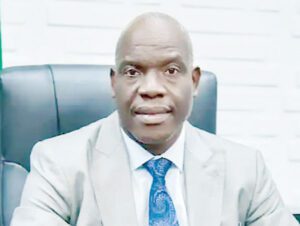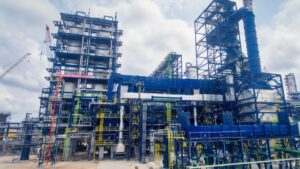
NNPC Retail empowers 1,000 Students with educational supplies
In furtherance of its Corporate Social Responsibility (CSR) initiative aimed at addressing global warming by focusing on girl-child education, NNPC Retail Ltd, a subsidiary of NNPC Limited, has empowered over 1,000 underprivileged secondary school students in Lagos, Rivers, and Akwa Ibom States with essential school supplies.
The beneficiaries of this year’s empowerment programme were drawn from Omole Senior Grammar School, Lagos; Community Junior Secondary School, Amadi-Ama, Government Secondary School, Ngo, and Community Secondary School, Ogbele in Rivers State; and St. Peter & Paul Comprehensive Catholic School in Akwa Ibom State. The students received school supplies such as backpacks, books, writing materials, sandals, and school uniforms.
The programme, which was carried out in partnership with Evolve, a non-profit organization birthed by Pacegate Limited and Pacegate Energy & Resources Limited (PEARL), has been for the past three years providing essential school supplies to students and teaching them heartfulness relaxation techniques as a means of self-awareness and self-care.
Speaking at the presentation ceremony, the Managing Director of NNPC Retail Limited, Huub Stokman, said, “NNPC Retail remains committed to empowering the girl child, providing them what they need to maximise their potential. As a sustainable and socially responsible organisation, we will continue to advocate for increased girl child education and empowerment while working with esteemed partners like Pacegate’s Evolve.”
While addressing the students, he said, “We are privileged to guide you through this program each year, and my advice to you is to make the most of the knowledge that your teachers and school are sharing with you. This knowledge will be invaluable in achieving your goals. Embrace learning, set high goals, and strive for your personal best.”
For three consecutive years, NNPC Retail Limited, formerly OVH Energy Marketing Limited, has adopted five schools across Lagos, Rivers and Akwa Ibom states, and supported them with educational materials to aid their learning process. Through this partnership with Evolve, NNPC Retail Ltd is committed to the adoption and support of more schools nationwide and would be expanding its reach to two more states in 2024.
Evolve was launched based on the Project Drawdown Report to address global warming by focusing on educating the girl child with a vision to be a catalyst for improved girl child education and an advocate of eco-friendly causes. Evolve has made high-level interventions in the girlchild and their education in Nigeria.



